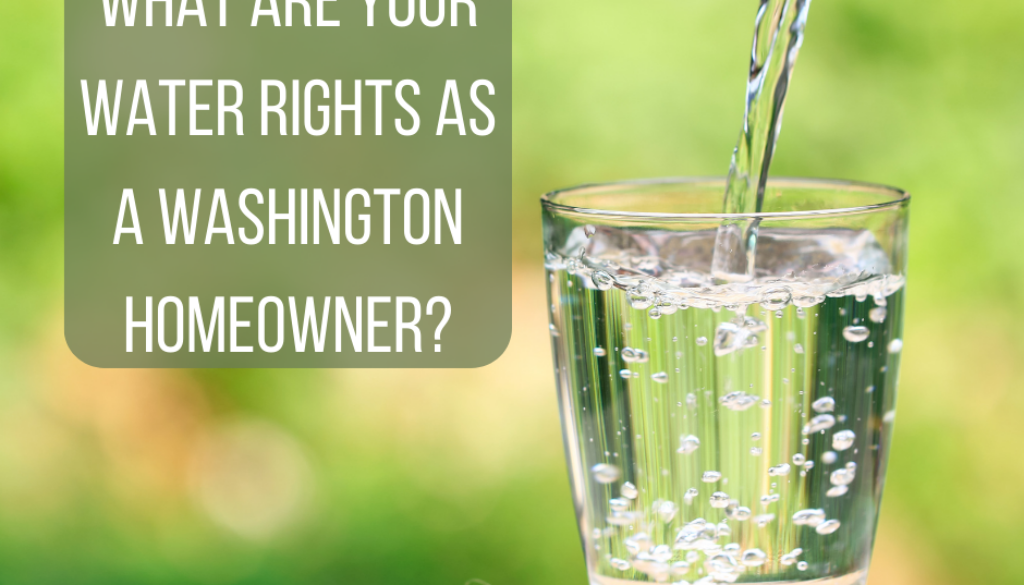What Are Your Water Rights As A Washington Homeowner?
Water is a precious and essential resource that plays a significant role in our daily lives. For homeowners in the state of Washington, understanding their water rights is crucial to ensure responsible and sustainable usage. As a region known for its abundant water resources, Washington State follows unique laws and regulations concerning water usage, allocation, and conservation. In this blog, we will explore the water rights of Washington homeowners and shed light on the state’s water management practices.
What Are Your Water Rights As A Washington Homeowner?
Prior Appropriation Doctrine
Washington, like many Western states in the USA, follows the “prior appropriation” doctrine for water rights. This doctrine grants water rights to those who first put water to beneficial use. In simpler terms, the first person or entity to divert water and apply it for a beneficial purpose, such as irrigation, domestic use, or industrial processes, gains priority over others seeking water from the same source.
Department of Ecology and Water Rights
The Washington State Department of Ecology is responsible for managing the state’s water resources and issuing water rights. If you are a homeowner seeking to establish a water right, you must apply to the Department of Ecology. Water rights are granted based on various factors, including the availability of water, the purpose of use, and adherence to state regulations.
Types of Water Rights
There are two primary types of water rights in Washington:
Surface Water Rights:
Surface water refers to water found in lakes, rivers, streams, and other natural bodies of water. Homeowners in Washington can obtain surface water rights for purposes such as irrigation, watering livestock, or domestic use.
Groundwater Rights
Groundwater refers to water stored beneath the earth’s surface in aquifers. Homeowners can also obtain groundwater rights for domestic use or other beneficial purposes. However, regulations surrounding groundwater are stricter due to its importance for maintaining environmental balance.
Riparian Rights vs. Appropriative Rights
Washington follows the prior appropriation system for water rights, which means that riparian rights, a system based on land ownership adjacent to a water source, do not apply here. Unlike riparian rights, appropriative rights do not depend on land ownership; they are based on beneficial use and priority.
Conservation and Sustainable Usage
Washington State places great emphasis on water conservation and sustainable usage. As a homeowner, it is essential to be mindful of your water consumption and adopt water-saving practices. Common conservation measures include fixing leaks promptly, using water-efficient appliances, and practicing responsible irrigation.
Adjudication and Water Rights Transfers
The Department of Ecology conducts water rights adjudication, which is a legal process to determine the validity and priority of existing water rights. This process ensures that water rights holders are using water responsibly and within the confines of their granted rights.
Additionally, water rights in Washington can be transferred under specific circumstances, such as selling a property with water rights or changing the purpose of water usage. Transfers must be done by state regulations and require approval from the Department of Ecology.
In Conclusion
Water is a precious resource that demands responsible management and usage. As a Washington homeowner, understanding your water rights is essential to ensure compliance with state laws and to contribute to the conservation of this valuable resource. The prior appropriation doctrine, managed by the Washington State Department of Ecology, governs water rights, emphasizing the priority of beneficial use over land ownership. By embracing water-saving practices and staying informed about water management regulations, Washington homeowners can play an active role in preserving the state’s abundant water resources for future generations.
If you’re eager to become a homeowner in Snohomish County or need helpful insights for your home search, don’t hesitate to contact us.




